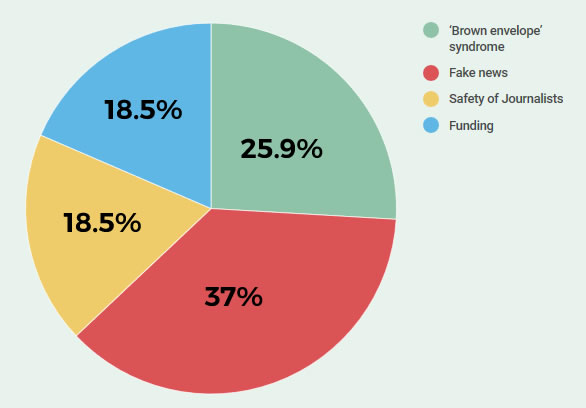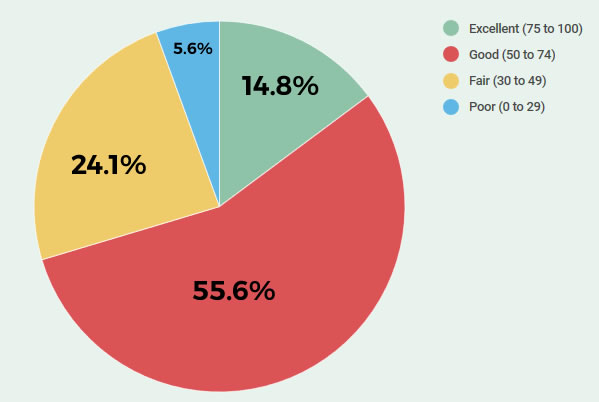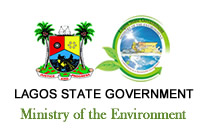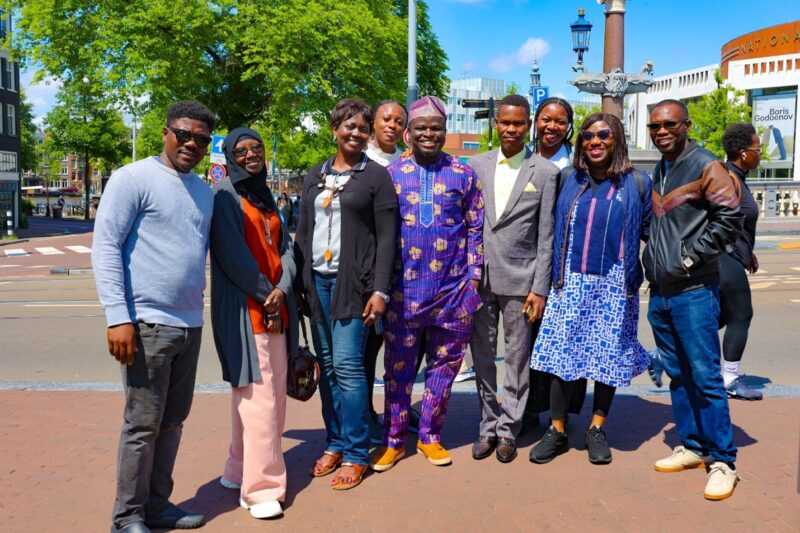The importance of news and journalism in advancing the cause of any society cannot be underplayed. Journalists are known to serve as the watchdogs of the society by holding government into account through accurate and compelling reportage of their activities.
As part of its activities to commemorate the #WorldNewsDay 2019 on 28th September, the Wole Soyinka Centre for Investigative Journalism conducted a survey on news and journalism in Nigeria. The survey therefore sought to determine public perception about news and the work of journalists in Nigeria.
Responses to the survey was quite representative. Respondents took the survey from the six geopolitical zones in Nigeria and beyond. The highest number of respondents were from the southwestern states of Lagos, Ogun, Oyo, and Ondo, followed by the FCT, then north-central states of Kwara and Benue, north eastern states of Borno and Gombe, then the north-western states of Sokoto and Kaduna, the south-southern states of Bayelsa, Edo and Rivers, and finally the south-eastern state of Enugu. In addition, responses were received from other countries, mainly the USA.
Based on gender analysis, 52.8 percent of respondents were male while 47.2 percent were female. The close gap between the number of male and female who responded to the survey, is a good indicator of interest in news and journalism in Nigeria among Nigerians regardless of gender. Responses based on age status shows that more people aged 26 and above (94.3%) completed the survey compared to those aged 25 and below (5.7%).
The perception-focused results of the analysis are presented below:
Do you still trust the news and journalists in Nigeria?
 41 out the 54 respondents, representing 75.5 percent indicated that they still trust the news and journalists in Nigeria while the remaining 13 (24.5%) indicated their lack of trust for the news and journalists in Nigeria.
41 out the 54 respondents, representing 75.5 percent indicated that they still trust the news and journalists in Nigeria while the remaining 13 (24.5%) indicated their lack of trust for the news and journalists in Nigeria.
Currently, what is your most trusted news source?
 Four platforms were listed to assess respondents’ most trusted source of news in Nigeria. Newspaper, TV and radio ranked highest at 73.6%, followed by online news platform at 20.8%, blogs and other social media platforms at 5.6%. This debunks the claim that newspaper and radio may be overridden by social media platforms.
Four platforms were listed to assess respondents’ most trusted source of news in Nigeria. Newspaper, TV and radio ranked highest at 73.6%, followed by online news platform at 20.8%, blogs and other social media platforms at 5.6%. This debunks the claim that newspaper and radio may be overridden by social media platforms.
What is the greatest threat to news and journalism in Nigeria?
 Fake news (35.8%), brown envelope syndrome (26.4%), safety of journalists (18.9%) and funding (18.9%) were identified as the greatest threat to news and journalism in Nigeria. This closely ties to the need for constant and timely renumeration for, as well as protection for journalists, for them not to compromise the ethics of their profession.
Fake news (35.8%), brown envelope syndrome (26.4%), safety of journalists (18.9%) and funding (18.9%) were identified as the greatest threat to news and journalism in Nigeria. This closely ties to the need for constant and timely renumeration for, as well as protection for journalists, for them not to compromise the ethics of their profession.
What is your overall perception and rating of the work of professional news organisations and their impact in Nigeria?
 The overall rating of respondents’ perception of the work of professional news organisations and their impact in Nigeria skews towards good as 30 of the 53 respondents (56.6%) rated it as such. Eight (15.1%) considered it as excellent, 12 (22.6%) as fair, and 3 (5.7%) as poor. The rating shows the need for news organisations and journalists in Nigeria to improve the quality and credibility of their reports, thereby redeeming the public perception about them.
The overall rating of respondents’ perception of the work of professional news organisations and their impact in Nigeria skews towards good as 30 of the 53 respondents (56.6%) rated it as such. Eight (15.1%) considered it as excellent, 12 (22.6%) as fair, and 3 (5.7%) as poor. The rating shows the need for news organisations and journalists in Nigeria to improve the quality and credibility of their reports, thereby redeeming the public perception about them.
In conclusion, media organisations need to put measures in place for verifying news sources in order to discourage the circulation of fake news. All other threats to news and journalism in Nigeria should be reduced to the barest minimum so that journalists can freely do their work without fear or favour. Journalists and media organisations should pay more attention to the ethics of the professional as this may affect personal and organisational integrity.
As the survey was a quick one to assess the level of trust about news and journalists in Nigeria, the WSCIJ hopes to conduct a bigger survey for more representation of the Nigerian context in terms of number of respondents and spread.








